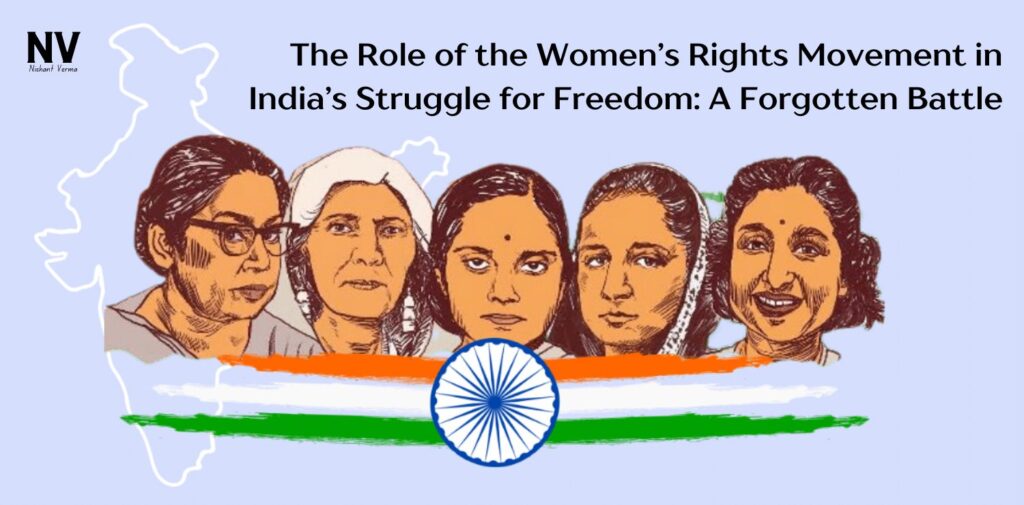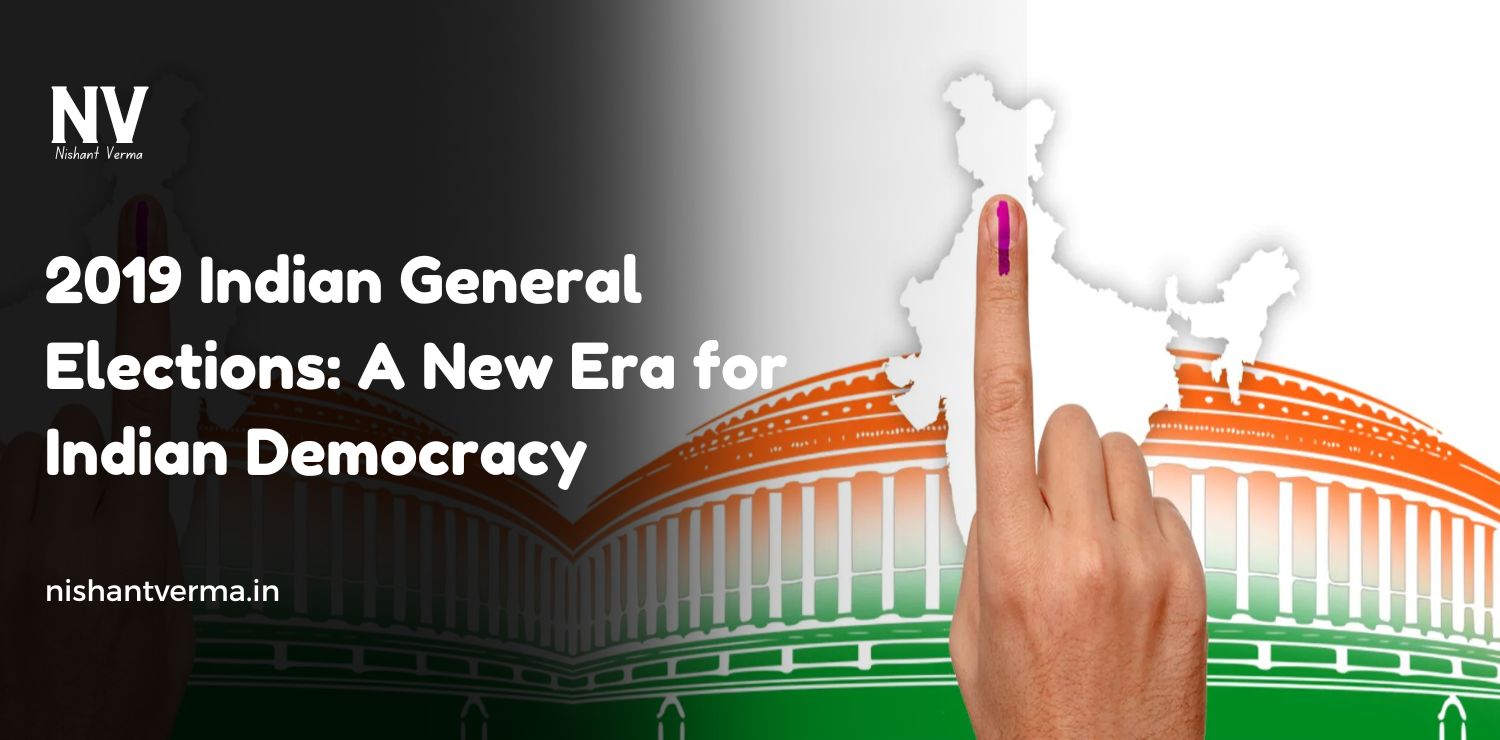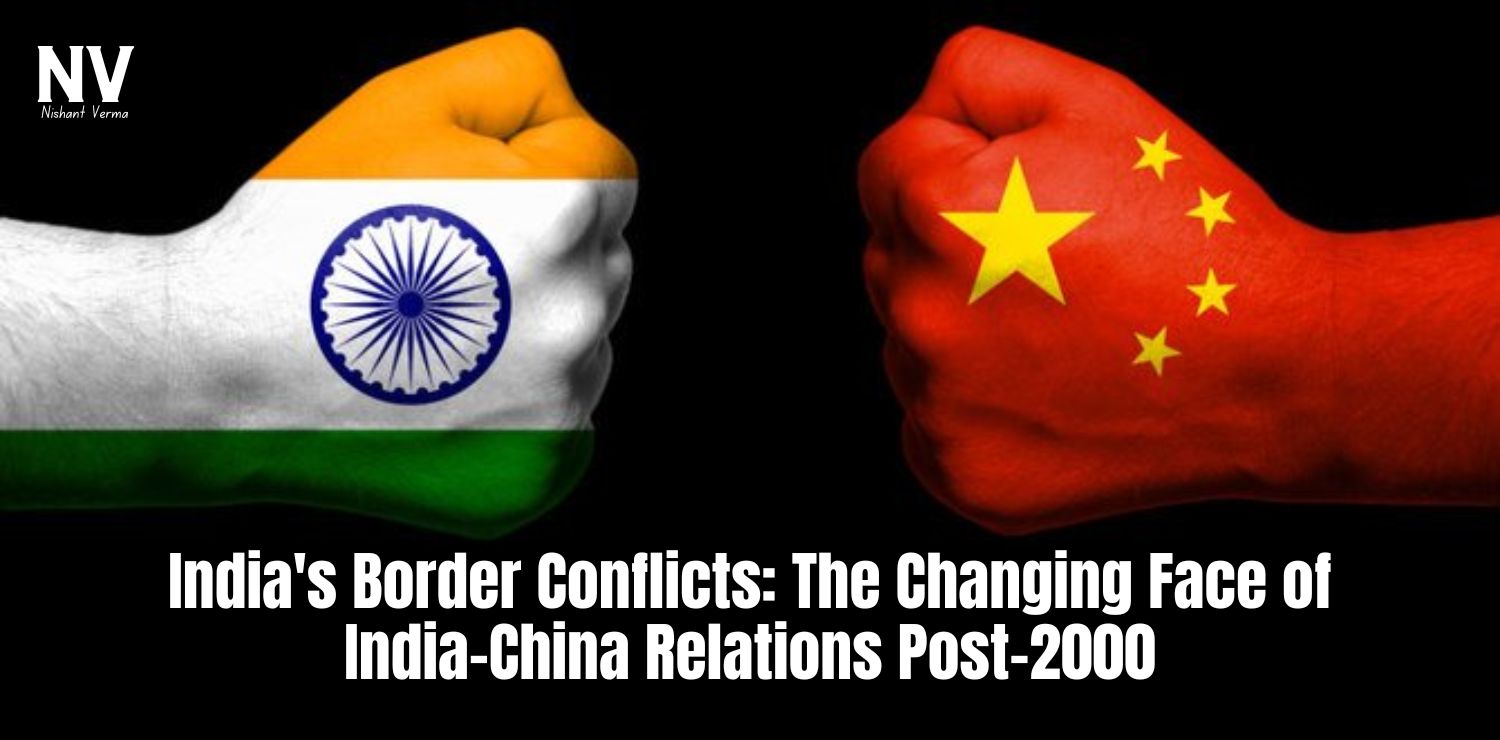When we talk about India’s fight for freedom from British colonial rule, the contributions of women in the struggle are often overlooked or minimized. The narrative of India’s independence has long been dominated by the stories of male leaders like Jawaharlal Nehru and Mahatma Gandhi, with little recognition given to the tireless efforts of women. In fact, the women rights movement in India played a crucial role not just in the fight for political independence, but in challenging the patriarchal systems that existed within Indian society itself.
However, while some leaders like Gandhi and Nehru are often celebrated for their roles in the freedom movement, they failed to give women the attention and recognition they deserved. Their policies and attitudes toward women’s rights sometimes worked against the very progress they claimed to support. In this article, we’ll explore the vital Role of the Women Rights Movement in the Indian freedom struggle and how their rights were often sidelined by the very people who led the independence movement.
Women’s Contribution to India’s Struggle for Freedom
The Indian freedom struggle was not a battle fought only by men. Women, in large numbers, participated in various forms of resistance against British rule. From the first war of independence in 1857 to the freedom movement of the 20th century, women were at the forefront, raising their voices for the rights of the Indian people and the dignity of the nation. However, their contributions have often been overshadowed.
In the early stages of the freedom movement, women like Rani Lakshmi Bai of Jhansi and Begum Hazrat Mahal played significant roles in the 1857 uprising. They fought courageously alongside men to resist British oppression. Rani Lakshmi Bai, in particular, became a symbol of courage and resilience, inspiring future generations of women in India. But their stories were often relegated to the background in mainstream narratives.
As the freedom movement gained momentum, more women joined the cause. Leaders like Sarojini Naidu, Kasturba Gandhi, and Kamaladevi Chattopadhyay emerged as key figures who not only fought against British colonial rule but also worked for social reform and women’s empowerment. Women organized protests, participated in boycotts, and contributed to the overall nationalist struggle. Despite these efforts, the leadership of the freedom movement remained dominated by men, particularly Nehru and Gandhi, whose attitudes toward women were often paternalistic.
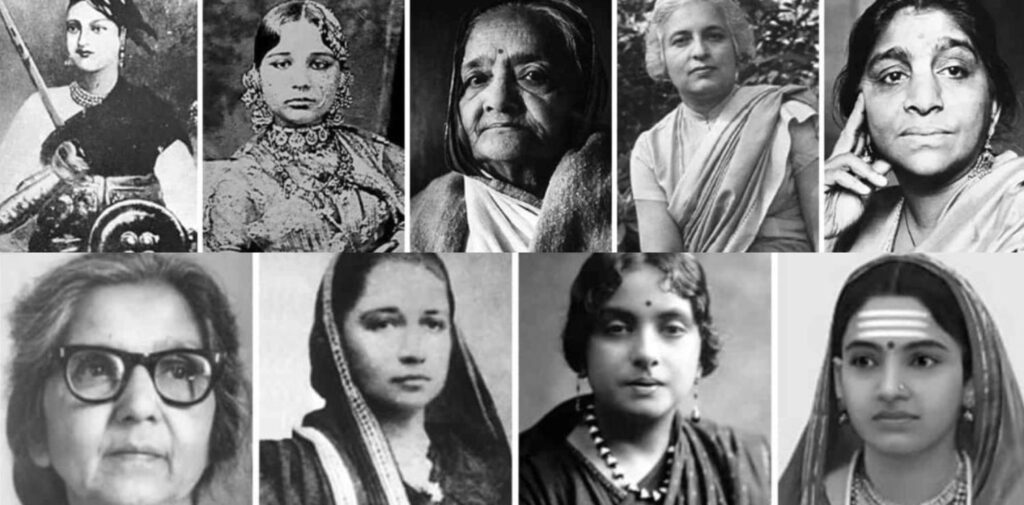
Gandhi’s Influence on the Women’s Movement
Mahatma Gandhi is often regarded as one of the greatest leaders in India’s struggle for independence. His philosophy of non-violence and his ability to mobilize masses were instrumental in the fight against British rule. However, when it came to women’s rights, Gandhi’s vision was deeply limited.
While Gandhi believed that women had a role to play in the freedom struggle, his understanding of their rights was rooted in traditional roles. He famously said that the role of women was to be the soul of the nation, but this often meant that their participation in the movement was restricted to symbolic acts of non-violence, rather than meaningful political or social involvement.
Gandhi’s emphasis on chastity and non-violence also had a limiting effect on the women rights movement. His belief that women should remain within the domestic sphere and focus on duties like spinning khadi (a traditional Indian cloth) was a reflection of the gender norms of his time. While Gandhi promoted women’s participation in the movement, it was often on terms that were dictated by him, rather than empowering them to take control of their own destinies.
In many ways, Gandhi’s leadership reinforced the patriarchal structures of society, even as he fought against British imperialism. His focus on women as symbols of purity and sacrifice, rather than as political agents, hindered the emergence of women as independent political leaders in their own right. This limitation continued even after India gained independence.
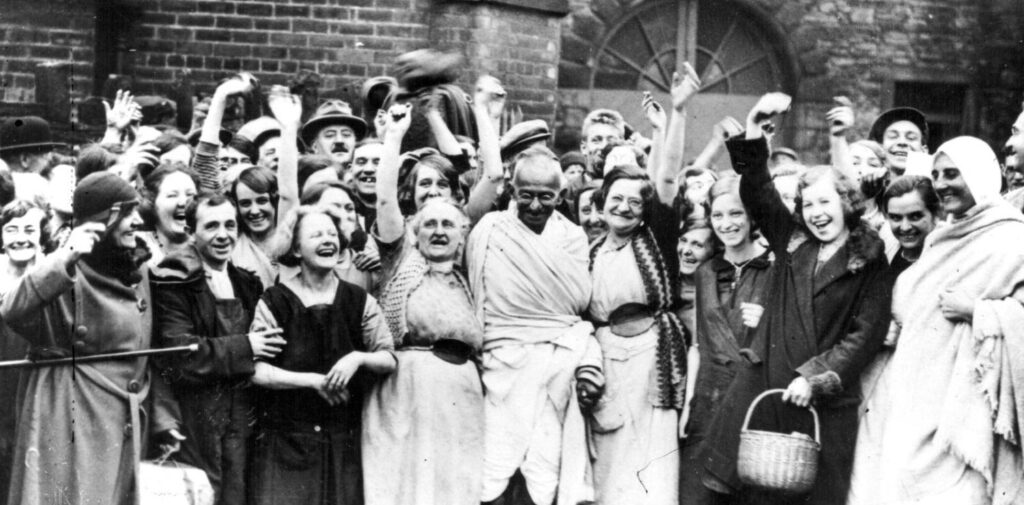
Nehru’s Policies: A Continuation of Patriarchy
Jawaharlal Nehru, India’s first Prime Minister, was another key figure whose vision for India’s future failed to adequately address the empowerment of women. While Nehru did make some strides in legal reforms, such as the Hindu Marriage Act of 1955, his overall approach to women’s rights was deeply influenced by his Western-style of governance and modernization. Nehru’s policies were often shaped by the need to create a strong, modern nation, but these policies did not prioritize the active role of women in shaping that nation.
Nehru, like Gandhi, held traditional views on gender roles. His vision of India’s development often focused on industrialization and secularism, but women’s participation in these changes was not given the same level of importance. While Nehru promoted the idea of women being part of the workforce, he failed to create a system that addressed the deeply entrenched patriarchal attitudes that restricted women’s freedom in various sectors of society.
Under Nehru’s leadership, India did witness some social reforms, but these changes were often driven by men and did not take into account the lived experiences and needs of women. The women rights movement, which had played a significant role in the freedom struggle, was relegated to the background once independence was achieved.
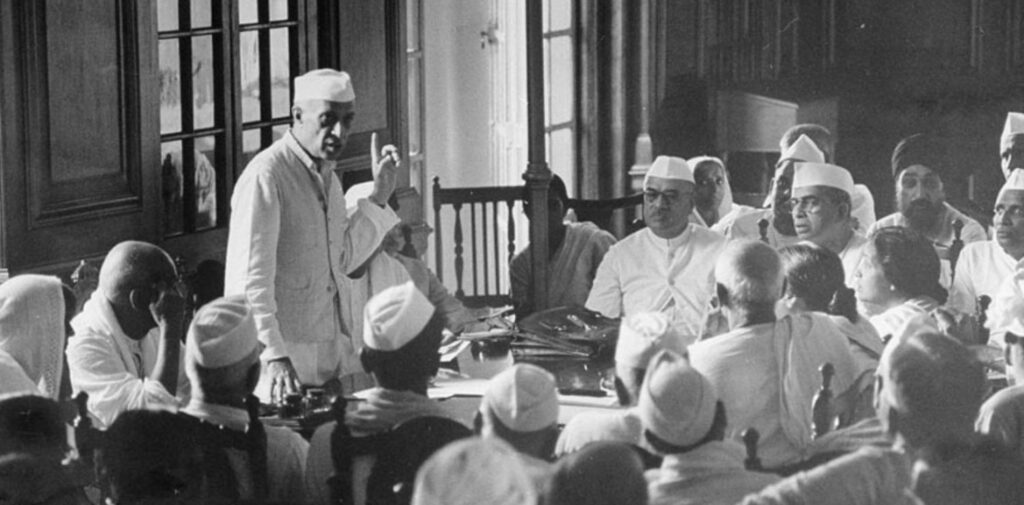
The Nehru-Gandhi Family and Women’s Rights: The Missing Link
One of the most important reasons why the women rights movement did not gain the traction it deserved after India’s independence was the influence of the Nehru-Gandhi family on the country’s political narrative. Both Gandhi and Nehru, though not opposed to some rights for women, failed to give adequate space for women’s voices within their own parties and government structures.
For instance, the Indian National Congress, under the leadership of the Nehru-Gandhi family, did not provide much political representation to women. Although women like Sarojini Naidu and Kasturba Gandhi held important positions, their influence was limited compared to the male leaders who dominated the Congress party. The feminist agenda that had emerged during the independence struggle became sidelined in the post-independence era as the political focus shifted more toward economic development and industrialization.
The Nehru-Gandhi family’s focus on secularism and political stability also created a narrow space for women’s issues in the national discourse. Instead of continuing the fight for gender equality and women’s empowerment, the priority shifted to establishing a political structure that excluded women from meaningful participation.
Indira Gandhi, despite becoming India’s first female Prime Minister, often perpetuated the same patriarchal systems that her father and grandfather had upheld. Her leadership style, while strong, was still heavily influenced by the male-dominated political system she inherited. While she made some progress on issues related to women, such as family planning and education, her leadership did not fully challenge the gender dynamics that persisted in India’s political and social structures.
Conclusion: Role of the Women Rights Movement
The women rights movement was an essential part of India’s fight for freedom. Women were not mere supporters of the nationalist struggle; they were leaders, activists, and thinkers who contributed significantly to the battle against British colonialism. However, the mainstream narrative has often overlooked their contributions, and the Nehru-Gandhi family’s leadership has failed to fully address women’s issues in post-independence India.
It is time for India to reclaim the forgotten history of its women freedom fighters and acknowledge the vital role they played not just in achieving political independence, but in challenging the patriarchal systems that restricted their rights. The fight for women’s equality in India is ongoing, and it is crucial that future generations understand the importance of women’s participation in the political, social, and economic spheres. Only by truly embracing women’s rights and empowering them in every aspect of life can India move forward as a just and equal nation.

